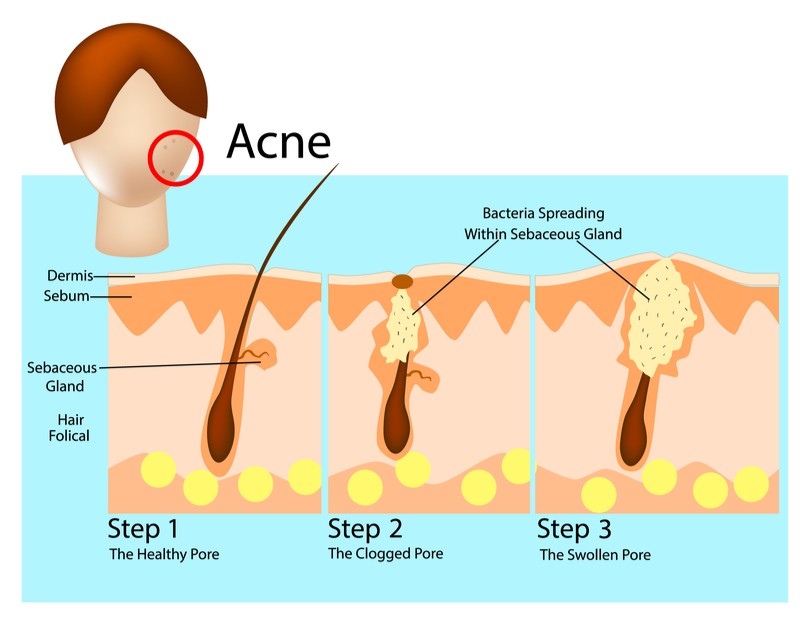Newsletter Signup - Under Article / In Page
"*" indicates required fields
The Italian biotech Cassiopea reports good news for acne sufferers. Its hormonal anti-acne treatment Winlevi significantly helped to reduce acne in two Phase III trials.
Winlevi, when applied to the skin, cleared the acne in more than twice as many participants with moderate or severe acne as placebo. The treatment also showed good safety results in the 1440 participants who took part in the trial.
“The US dermatology market has not seen a new mechanism for acne since the 1980s,” stated Diana Harbort, CEO of Cassiopea. “If approved, we expect high interest from doctors and patients.”
Acne appears when skin glands produce excess oils and clog up hair follicles. This lets opportunistic skin bacteria colonize the blockage and cause inflammation. Hormones such as androgens influence how much oil the skin glands produce, which can be blocked with oral hormonal treatments. However, as oral hormone treatments also affect other sites around the body such as the brain, this often produces unwanted side effects such as decreased libido.

According to Cassiopea, Winlevi is a small molecule that can only target skin glands due to its topical application. This novel mechanism means that it lacks common side effects associated with oral hormonal treatments.
The company stated that it plans to apply for FDA approval in 2019. It also carried out a 12-month follow-up safety trial of Winlevi in 345 acne patients from the Phase III trials, and expects to publish the results later this year.
The company has other projects in the pipeline, with all undergoing Phase II. One project applies Winlevi at a higher concentration to treat spot baldness, a condition where excess androgens in children cause small areas of hair loss on the scalp. In the other projects, Cassiopea is developing a topical antibiotic for acne, and a compound targeting the immune system to treat genital warts.
Notably, the Belgium-based biotech S-Biomedic is also developing a novel topical acne treatment, but its treatment modifies the skin microbiome, making the skin bacteria less likely to trigger acne.
Images from Shutterstock






